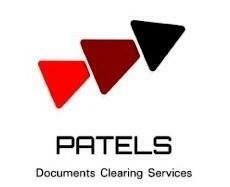If you want to start a business in another country, Dubai is a great choice. Known as a major center for trade in the Middle East and North Africa, Dubai offers lots of advantages for businesses wanting to grow, do well, and reach out to the world. So, if you’re thinking about where to setup business in Dubai, you’re looking in the right place.
In 2023, Dubai’s economy grew by 7.6%. In 2024, it’s expected to grow by 3%. The UAE is seen as a safe place to do business, ranking 10th out of 153 countries for being low-risk. This means it’s a stable place to start a business. If you’re thinking about starting a business in Dubai, it’s pretty straightforward, especially with the UAE’s free zones making things easier.
Setup Business in Dubai Mainland
Setup business in Dubai mainland is a great move for those looking to dive into the vibrant economy of this dynamic city. Dubai’s economy is massive, worth about $102.67 billion, and it’s not just about oil; less than 1% comes from that. Instead, Dubai shines as a global hub for trade and commerce, right up there with big names like New York, Singapore, and London. Plus, its strategic location lets you reach two-thirds of the world in eight hours or less by air.
When you’re thinking about where to plant your business roots in Dubai, you have three main choices: on the mainland, in a free zone, or offshore. Opting for the mainland is the best for flexibility and variety in what your business can do. It’s the top pick for many because you can engage in any type of business activity, making it easier to meet and serve your customers.
Here’s a simple guide to get your mainland business up and running:
- Pick a Business Name: Choose a unique name that follows Dubai’s naming rules.
- Prepare Your Paperwork: Draft documents that outline how your company will operate and divide ownership.
- Notarize Documents: Take these documents to a Notary Public to make them official.
- Find a Location: Decide where your business will be and secure the space.
- Sign a Tenancy Agreement: Make an official deal with the property owner.
- Register Your Lease: Turn your agreement into a recognized Tenancy Contract.
- Apply for Registration and License: Submit your application to officially start your business.
- Pay the Fees: After getting a payment voucher, pay the required fees.
- Get Your Business License: With payment done, you’ll receive your company registration and business license.
It’s wise to get help from a business setup consultant who knows the ins and outs of starting a company in Dubai’s mainland. They can guide you through each step, making the process smoother and ensuring you’re all set for success.

What to Know Before Setup Business in Dubai
Before you get started, there are some important things to know about set up a business in Dubai. Let’s walk through them step by step. Getting this right will help make the whole process smoother for you.
Free Zones vs Offshore
Before starting your business, you need to choose if you want to work in a Free Zone or Offshore. Each option has its own good points and details, based on what you need.
Free Zone
If you want full control over your company, think about setting up a business in Dubai’s free zones. The Dubai government created these areas to attract foreign businesses. In a free zone, you can own your business completely, pay 9% corporate tax (only on profits more than AED 375,000), and pay no personal income tax at all.
But, there’s a big rule in free zones: you can’t sell directly to the local UAE market.
Right now, Dubai has more than 30 free zones. Each one focuses on a specific type of business and gives licenses to companies in that area. Here’s how to set up a business in Dubai free zone: you choose the one that fits your business type and follow the process to get your license
Offshore Companies
Offshore companies can be set up in a free zone too, enjoying lots of the same benefits. But, setting up an offshore company is different from having a free zone company, especially in how you can run your business. Offshore companies do their business outside the UAE, not inside. Plus, they don’t need to put down a minimum amount of money to start.
But, if you choose to go the offshore route for your Dubai business setup, remember you’ll need a local sponsor. This means you can only own up to 49% of your business, not the whole 100% like in a free zone.
Types of Business Licenses
Besides choosing a zone, you also need to figure out what kind of license you need. The Department of Economic Development (DED) gives out business licenses, and there are 3 main kinds you can get:
Commercial License
A Business License is what you need to open a business in Dubai that buys and sells things. This covers many areas like importing and exporting, sales, logistics (moving goods), travel and tourism, running stores, and dealing in property. Remember, when considering the cost to set up a business in Dubai, this license is important for all these kinds of work
Industrial License
An Industrial License is for businesses that make new products from raw materials, by hand or using machines. This includes making things like clothes, metals, and paper. If you want to set up a business in Dubai that makes products, you need this license.
Professional License
A Professional License is given to businesses that offer services or are skilled in crafts. This includes doctors, beauty salons, and repair shops. If you provde a special service or are skilled in making or fixing things, this is the license you need. It’s important for anyone who wants to help others or provide a special skill in their business. This way, you can make sure your business runs smoothly and legally.
Setup Business in Dubai Freezone.
Starting a business in free zones is a favorite choice for people from other countries because it gives them:
- No personal tax
- Low taxes for businesses
- Full control of their company
- The chance to take all their money and profits back home
- No rules on what currency they can use.
7 steps to get your business in Freezone:
Choose Your Business Type
First off, when you want to set up a business in Dubai, you need to figure out what kind of business you want to start. It could be a small shop or something bigger like a crypto business. There are more than 2,100 different business activities to pick from. These activities cover various areas like industry, trade, services, and tourism. You can check out the complete list on the DED website. Knowing exactly what your business will do is a big step towards making it a reality, whether it’s selling goods, offering services, or something else.
Choose The Free-Zone
Dubai has more than 30 free zones, so it’s usually a good idea to start your business near others in the same industry. What your business does can influence which free zone is best for you.
Dubai’s top free zone for trade and business in commodities has been named the best Global Free Zone by the Financial Times’ fDi Magazine for the past eight years. This shows it’s a great place for businesses to grow and succeed. Picking the right free zone can give your business the edge it needs to do well.
Select The Company Name
When picking a name for your business, make sure it follows the rules in the UAE. Avoid names that could upset anyone or are linked to politics or illegal groups. If you want to name your business after someone, you need to show they are part of your business (you can’t just use initials or short forms).
Choosing a business name can be tricky. To make things easier and save time, consider getting help from an expert. This way, you can make sure your business name meets all the rules and gets approved quickly. When you’re ready to start your business with Patels, getting the right name is an important first step. An expert can guide you through this process, ensuring your business starts off on the right foot.
Get Your First Approval
You need a first okay from the Dubai Department of Economic Development (DED) to make sure there are no problems with starting your business. You can ask for this okay online, in person, or with help from a third party like a law firm. The papers you need to show will depend on what your business is about, but they usually ask for:
- A form for business registration and getting a license
- A copy of your passport or ID
- A copy of your visa or permission to live there
- The rules of how your company runs
- A study showing your business idea can work
If you need help with applying, our experts are here to walk you through everything to make sure your documents are filled out and prepared correctly.
Setup Business Bank Account
After you get the green light and all your needed papers back, you’re ready to open a business bank account. The UAE has lots of banks to pick from, including big names from both here and abroad, like:
HSBC
Citibank
Barclays
Abu Dhabi Commercial Bank
Commercial Bank of Dubai
To find out more, take a look at our blog. We’ve laid out a simple 5-step process to help you open your bank account in Dubai without a hitch.
Choose Your Office Space
Every business in Dubai must have a real address. Luckily, choosing a free zone can make finding your new office spot easier.
At Patels Document Clearing Services, we have a lot of different office spaces, buildings, and spots in business centers that you can rent, hire, or lease, no matter the size or type of your business. Our offices come with everything you need, like wi-fi, meeting rooms, support services, and all the basics. With 68 towers in the area, you’ll definitely find the perfect office to set up a business in Dubai.
Request Your Final Approval
To get your final approval, make sure all your documents, where your business will be, and legal stuff are ready. In some cases, you might also need an OK from other government departments. Here’s what to submit:
- The receipt from your initial approval and all documents you’ve already turned in.
- Your rental contract from the Real Estate Regulatory Agency (RERA).
- A signed agreement with a local service agent (needed for businesses 100% owned by people not from the GCC).
- Approval from any other government bodies if required.
Finally, pay for your license using the approved methods, and your business is good to go.


